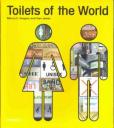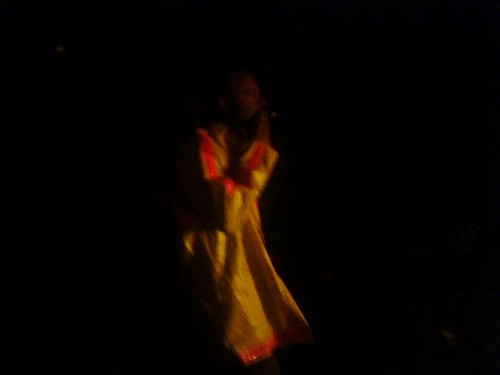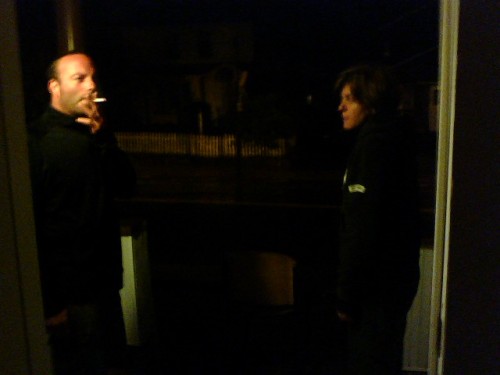-
Search It!
-
Recent Entries
- ICM
- Christmas isn’t Christian. Let’s stop pretending that it is.
- A few thoughts on Thanksgiving
- Yes, I’m cashing in this ten-cent life …
- Hot licks and rhetoric
- An atheist’s Christmas wish list (for Christians)
- Keep the Ten Commandments out of the courthouse
- Everything you did
- Chinese music under banyan trees…
- Laughing in the frozen rain
-
Links
- A thaumaturgical compendium
- Alan Hoving
- Amanda Cuda: Turned On
- Anita’s blog
- Babelfish translator
- Banjo blog
- Blue Letter Bible
- Cafe Nine
- Charmaine’s blog
- Chino2
- Cliff’s blog
- Connecticut Weblogs
- Connecticut Weblogs
- Creeping Meatball
- CT Energy Blog
- CT Post Photo Blog
- Cursor
- Danglers, New Haven
- del.icio.us
- Dierdre’s blog
- Dogs and cats living together
- Engrish
- Every Word’s a Purl
- Fark
- Halleycomm
- Helen’s Blog
- Huffington Post
- ICM 501
- Joe Meyers On Movies
- Landover Baptist
- Lauren’s blog
- Lory’s blog
- Mantis Boxing
- Marie’s blog
- Mark’s blog
- Maxiwaxi
- Mercy Meadows
- Metric conversion
- Ms. Monae
- My Homepage
- My photo page
- National Archives
- New Haven Register
- Newsvine
- North Korean News Agency
- Pandora/Music Genome Project
- Rick’s Video Potpourri
- Romenesko
- Shellye Valauskas Experience
- Shoshana & Elisheva
- Smartdust
- Steely Dan Lyrics
- The Connecticut Post
- The Drudge Report
- The Low Road
- The New Haven Independent
- The Sex Blog
- The Wayback Machine
- This & That
- Tom Andersen’s Long Island Sound blog
- Upside down & backwards
- Wikipedia
- WordPress.org
- XE Currency Converter
ICM
Posted in Uncategorized
Christmas isn’t Christian. Let’s stop pretending that it is.
 Let’s stop pretending that Christmas is a Christian holiday. It’s not — at least, not in any meaningful way. Not in the way it’s celebrated in the western world. And, more and more, not in the way it’s celebrated in the rest of the globe.
Let’s stop pretending that Christmas is a Christian holiday. It’s not — at least, not in any meaningful way. Not in the way it’s celebrated in the western world. And, more and more, not in the way it’s celebrated in the rest of the globe.
It’s time for atheists, Jews, Muslims, pagans and other non-Christians to get their Santa on. Christmas is a party, but it’s a party that nearly one in five Americans does not feel invited to. That’s, quite frankly, at odds with our long tradition as the world’s melting pot. Christmas is part of the our shared culture. We should all feel free to participate.
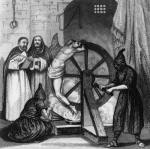 Christmas is about as Christian as Halloween. Really. It’s a collection of ancient pagan traditions that were co-opted by the Church and given a thin veneer of Christianity (which it has since mostly lost) so that people could go on enjoying it without attracting the attention of the Inquisition.
Christmas is about as Christian as Halloween. Really. It’s a collection of ancient pagan traditions that were co-opted by the Church and given a thin veneer of Christianity (which it has since mostly lost) so that people could go on enjoying it without attracting the attention of the Inquisition.
 There is no Santa in the Bible, and few Christians would recognize the Fourth-Century Greek saint, Nicholas, as the Jolly Old Elf of Christmas lore. The image of Santa on his reindeer-driven sleigh invokes Odin and his Wild Hunt far more than anything in the Christian tradition (and this makes sense, considering that the modern Santa myth originated in northern Europe).
There is no Santa in the Bible, and few Christians would recognize the Fourth-Century Greek saint, Nicholas, as the Jolly Old Elf of Christmas lore. The image of Santa on his reindeer-driven sleigh invokes Odin and his Wild Hunt far more than anything in the Christian tradition (and this makes sense, considering that the modern Santa myth originated in northern Europe).
I won’t dwell on the other beloved “Christmas” traditions, as much has been written about them elsewhere. Suffice it to say that if you’re looking for their origins, you won’t learn much in the Bible.
Christ wasn’t born on Dec. 25 in the year 1 A.D. Neither the year nor the date was recorded precisely. A December birth was settled on long after the events of the Gospels, when early Christian monks mused that Christ must have been executed on the anniversary of the Immaculate Conception, and so they worked forward nine months from Good Friday.
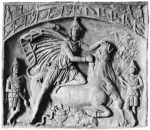 Conveniently, a major Roman pagan cult also celebrated a feast on Dec. 25. Also, European pagans held a winter Solstice celebration in late December: As Christianity spread its evangelists found it expedient keep the holiday in place — with many of the accompanying traditions. And so, we wound up with Christmas trees, yule logs, wreaths, stockings over the fireplace, mistletoe, and other pagan holdovers.
Conveniently, a major Roman pagan cult also celebrated a feast on Dec. 25. Also, European pagans held a winter Solstice celebration in late December: As Christianity spread its evangelists found it expedient keep the holiday in place — with many of the accompanying traditions. And so, we wound up with Christmas trees, yule logs, wreaths, stockings over the fireplace, mistletoe, and other pagan holdovers.
It’s true, some Christians make it a point of attending church on Christmas eve, in observance of the Mass of Christ. And a very few eschew all of the conventional Christmas traditions, choosing instead to spend the day in prayer and reflection of Christ’s life and death. A few modern Christmas traditions retain a fair amount of overtly religious symbolism — the star or angel at the top of the tree, the nativity scene in the churchyard, the more sacred of the Christmas carols.
 But they’re little more than ornaments to the secular Christmas tradition.
But they’re little more than ornaments to the secular Christmas tradition.
A Christmas tree with a disco ball on top is still recognizably a Christmas tree. Some of the most beloved Christmas songs mention flying reindeer and animated snowmen, but leave Christ out altogether.
You can have (probably have had) a real, authentic American Christmas experience without going to church, without setting up a creche and without so much as uttering the word “Jesus.”
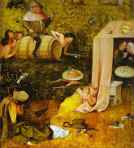 The truth is, pious Christians ought to be embarrassed for the hollow mockery that the celebration of their lord’s birth has become: a wonton orgy of greed and consumerism, a Saturnalia for spoiled children and a gala for gluttons, conducted with nary a thought to the world’s hungry and downtrodden.
The truth is, pious Christians ought to be embarrassed for the hollow mockery that the celebration of their lord’s birth has become: a wonton orgy of greed and consumerism, a Saturnalia for spoiled children and a gala for gluttons, conducted with nary a thought to the world’s hungry and downtrodden.
The biblical Christ would have wept had he observed this annual paean to Mammon.
Posted in Uncategorized
A few thoughts on Thanksgiving
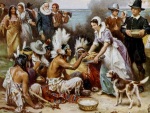 Why do we give thanks on Thanksgiving Day? Instead of thanking god this year, maybe we should take a moment to thank the thousands of real people who toiled to bring the feast to our table.
Why do we give thanks on Thanksgiving Day? Instead of thanking god this year, maybe we should take a moment to thank the thousands of real people who toiled to bring the feast to our table.
I propose that at this year’s Thanksgiving Day meal, we raise a toast to the farm workers, the truckers, the packagers, the FDA inspectors, the butchers, the bakers, the brewers, the forklift operators, the supermarket employees and everybody else who played a role in bringing your meal from the farm to your plate. If not for them, you’d have to cultivate, raise, slaughter and prepare your own food.
It seems to me that thanking god is a copout and a slap in the face to the actual human beings who silently contribute to the fabulously comfortable lives modern Americans enjoy.
This notion that god is responsible for our bounty (as if it the feast on the table magically appeared there by divine will) distances us from the real men and women who actually contributed to it. I wonder if this is one of the reasons we find it so easy to ignore, or even show contempt for, food workers and other people on the lower rungs of the American social ladder.
So if you get the chance today, thank a grocery store clerk, farmer or dairy worker. God gets enough praise, most of it undeserved.
Happy Thanksgiving, everyone, and enjoy your meals!
Posted in Uncategorized
Yes, I’m cashing in this ten-cent life …
 Comin Thro’ The Rye.
Comin Thro’ The Rye.
O Jenny’s a’ weet, poor body,
Jenny’s seldom dry:
She draigl’t a’ her petticoatie,
Comin thro’ the rye!
Comin thro’ the rye, poor body,
Comin thro’ the rye,
She draigl’t a’ her petticoatie,
Comin thro’ the rye!
Gin a body meet a body
Comin thro’ the rye,
Gin a body kiss a body,
Need a body cry?
Gin a body meet a body
Comin thro’ the glen,
Gin a body kiss a body,
Need the warld ken?
Gin a body meet a body
Comin thro’ the grain,
Gin a body kiss a body,
The thing’s a body’s ain.
— Robert Burns
Posted in Uncategorized
Hot licks and rhetoric
As a rule, you’re basically having a good day if you’re getting better press than Apple. Both the President and Apple are known for powerful public appearances, but Apple has a record of exceeding initial expectations, while Obama has thus far been unable to deliver on his most important promises.
CNN added an interesting twist to its political coverage this year, with a new tool to analyze Twitter chatter about the president’s speech. No word on why CNN seems to think that people who Tweet about politics have anything useful to say about the mood of the larger electorate.
Posted in Uncategorized
An atheist’s Christmas wish list (for Christians)
 OK. Here are some of the things I wish Christians would understand about me and my beliefs:
OK. Here are some of the things I wish Christians would understand about me and my beliefs:
1. Please don’t try to convert me. In return, I won’t foist my atheism on you. Your chance of success is about the same as the chance someone will successfully convert you to Hinduism.
2. If you insist on trying, please do not employ a scripture-based argument. I don’t believe in scripture, so your argument simply doesn’t make any sense to me.
3. Don’t ask me to read the Bible. I’ve read it. It’s one of the main reasons I don’t believe in it.
4. I celebrate Christmas and do not feel like a hypocrite. There are no reindeer, elves or Santas in the Bible.
5. I have no problem with prayer in public schools. You can pray any time, anywhere. I do have a problem with organized prayers endorsed by public schools.
6. I think nativity displays are pretty. But they belong on church property, not public property. They are essentially advertisements for religion.
7. The Ten Commandments do not belong in public buildings. I agree that it’s bad to kill and steal, but the other commandments violate Constitutional rights to freedom of speech and religion. Post the Bill of Rights in every courthouse instead.
8. I consider myself a moral person. I follow an ethical system based the Golden Rule (which, by the way, is common to Christianity, Judaism, Islam and Buddhism). I believe morality is an outgrowth of rational self-interest and natural altruism.
9. I sometimes visit churches. I love the music and traditions and rituals. I believe it is psychologically healthy to confess your sins, to pray, and to celebrate communion with god or the universe or the force or whatever.
10. I am not even slightly worried about going to hell.
Posted in Uncategorized
Keep the Ten Commandments out of the courthouse

The Ten Commandments have no business in U.S. courtrooms. They are in stark conflict with the U.S. Constitution and values and have no place in our courthouses or public buildings. A judge cannot follow both the Commandments and the law without violating one or the other.
Of the Commandments, only two can reasonably be described as valid bases for laws: the imprecations against murder and theft.
The first four commandments are clear violations of the religious liberties guaranteed under the Constitution. If a person of Hindu belief were to walk into a courtroom seeking justice and see these commandments, that person could reasonably conclude that his or her beliefs are illegal under the law. This stands in stark contrast to the First Amendment: “Congress shall make no law respecting an establishment of religion, or prohibiting the free exercise thereof …”
Commandment 3 breaks the First Amendment guarantee freedom of speech. Commandments 5, 9 and 10 are generally good advice, but probably also fail the First Amendment test.
It’s worth noting that even within Christendom there is no agreement on what the Ten Commandments say. They are never listed as such in the Bible, and they are worded differently in the books of Exodus and Deuteronomy. Protestant and Catholic groups traditionally break them down differently, with the Catholics understandably playing down the part about worshiping idols and graven images.
So if a law were passed requiring the Ten Commandments to be posted in every courtroom, immediate conflict would arise over which version to use. This, incidentally, is exactly why the Founding Fathers believed it wise to keep government out of the religion business, and vice versa.
The Ten Commandments in plain English:
1. You must worship no god except the Jewish/Christian/Muslim god, Yahweh (Jehovah).
2. You will not make or worship idols or graven images, like people of many other religions (not to mention lots of Christians) do.
3. You will not speak god’s name in vain.
4. Remember the Sabbath day (whichever day you happen to believe that is) and keep it holy.
5. Honor your father and your mother.
6. Do not murder (unless the government says it’s OK).
7. Do not commit adultery.
8. Do not steal.
9. Do not lie.
10. Don’t covet other people’s property.
Posted in Uncategorized
Chinese music under banyan trees…
Beijing official: “We are spreading toilet culture. People can listen to gentle music and watch TV. After they use the bathroom they will be very happy.” Read more.
Posted in Uncategorized
Laughing in the frozen rain
Pics from a rainy Independence Day. The big fireworks were canceled, so we had to make do. All photos taken by cell phone.
Posted in Uncategorized



